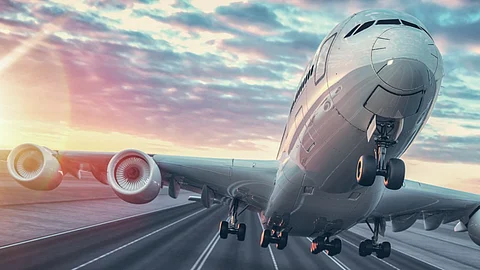

A federal charge on air travelers brought in more than $832 million last year, setting a record, newly obtained documents reveal.
Blacklock's Reporter says the fee, which cabinet increased by 33% in its 2023 budget, remains a point of contention among unions and industry leaders.
"The Government of Canada is committed to keeping the Air Travelers Security Charge revenues roughly in line with the expenses for air travel security over time," stated a Canada Revenue Agency memorandum.
The Department of Finance reviews financial data on an annual basis to ensure alignment between revenue and security spending, the document added.
The fee revenue, totaling $832.96 million, marked a $70.8 million or 9% increase over the previous year. Meanwhile, the Canadian Air Transport Security Authority spent $866 million in the same period, according to Public Accounts.
First introduced in 2002 as a cost-recovery measure after the 9/11 attacks, the charge was hiked in 2023 to $20 for domestic flights and $34 for international flights.
However, industry leaders argue the fee functions more as a tax than a dedicated security expense.
“I wish I could say these increases in fees would lead to better service for both the airlines and passengers,” said Jeff Morrison, then-CEO of the National Airlines Council, at a 2023 Senate national finance committee hearing.
“I cannot say that. With the increase in the air security charge, that is money that goes into general revenue.”
Morrison expressed skepticism that higher fees would translate into improved security services.
“That’s a direct carryover to the passenger,” he said, pointing out that airlines merely pass the cost along through ticket prices.
Concerns about the fee’s effectiveness are longstanding. In 2014, Dave Ritchie, then-vice president of the International Association of Machinists and Aerospace Workers, told a parliamentary committee that travelers were not receiving the service they paid for.
“This is a tax on the flying public,” he said.
A 2015 statutory review of the Transportation Act, led by former industry minister David Emerson, found that security charges consistently exceeded screening costs.
“Security charges have exceeded the cost of security screening by an average of 18% every year since 2010 and fail to recognize the national interest in a secure system,” the review concluded.
